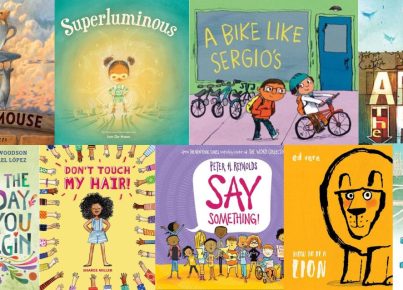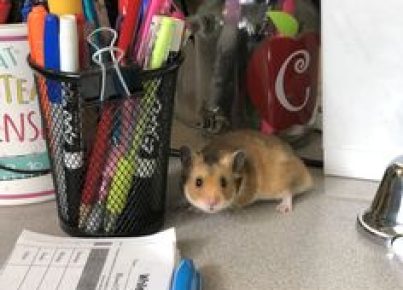Back in 2001, when I started as a teacher, the technology boom was in its nascent stage. I remember toting a large bag filled with papers home most nights and going to sleep drowning under a vast sea of student homework that needed grading. My classroom was even worse, cluttered with books, manipulatives, globes, maps, and learning stations that left little room for anything else. However, as I write this in 2018, things have changed dramatically. Today’s teachers have edtech in their corners.
Digital teaching and learning tools have streamlined education processes and provide learning experiences that stretch far beyond the materials that were available for me back in 2001. Back when I was a special education teacher, the only students who had personalized learning plans where special needs students. Individualized Education Plans (IEP’s) were created for them to satisfy the requirements of IDEA (Individuals With Disabilities Acts). They were notoriously time consuming, but we never complained because it was for a good cause.
Nowadays, with the advent of personalized/adaptive learning apps, teachers can create personalized/adaptive learning experiences for all students. If I were still in the classroom today, I’d use these personalized/adaptive learning apps, tools, and resources:
Socrative: Socrative is an easy way for teachers to identify how students are doing clearly. They can assess students or offer them prepared activities to see where they are at currently and help the system make a more personalized plan.
Newsela: Newsela combines major news and research with adaptive reading materials. Split your class up into their appropriate categories and give them an article to read. You can find relevant material for every subject area so you can incorporate literacy across your entire day.
ThinkCERCA: This is a personalized literacy platform that helps teachers convey critical reasoning skills by using argumentative writing. The platform focuses on helping students aged nine to eighteen prepare for life after high school by strengthening their analytical skills in every subject. The platform makes use of standards-aligned close reading and academic writing lessons to teach English language arts, science, social studies, and mathematics.
Cerego – Cerego is a personalized learning platform that helps people learn faster, remember longer, and objectively measure their knowledge using AI-assisted predictive algorithms. It helps organizations improve productivity as employees learn better and are better motivated and more capable. The app uses predictive learning features to deliver individual specific learning materials to its users. Available on Android and iOS devices
Flipick – This app creates a personalized learning experience for every student and helps to develop curricula. It also creates an interactive and collaborative learning environment for learning to take place.
Kytabu – A textbook subscription app developed in Kenya. The app provides access to digitized versions of all Kenyan textbooks from Standard 1 to Form 4 at rates that are affordable for African families. Kytabu uses machine learning to help provide personalized learning for learners. The learners can access educational content that includes books, videos, audios, tests, as well as exams. A great advantage of the app is that it can be used offline. This is a crucial issue in Africa where internet access is limited and often unreliable.
Quizalize: Make your subject matter fun again with the adaptive learning platform offered through Quizalize. Every assessment feels more like a game, giving students the motivation to do their best. It allows you to easily identify where students are struggling so teachers can be better equipped to make a more personalized learning plan or offer more assistance.
Knowre: When it comes to STEM, many students struggle with the math component. Knowre offers an adaptive learning experience that can help bolster a student’s mathematical abilities. They offer supported practice time, fill in the gaps with a personalized review, and offer actionable data to educators.
Scootpad: With Scootpad, students get a comprehensive adaptive learning experience. It starts with practice, allowing Scootpad to meet students where they currently are. It moves on to offer more instructional content, real-time remediation, and assessments.
Freckle Education– Students can easily fall in love with schooling again as this app enables them to work in various subjects at their pace. Teachers can monitor students’ progress across various subjects such as science, social studies, math, and English language arts.
SmartEd: With this tool, you can make relevant changes to textbooks and other learning materials to suit the needs of your students. This platform also allows you to be in direct contact with your students. It uses a game-like approach, which aims to make learning look less imposing.
Did we miss any?



